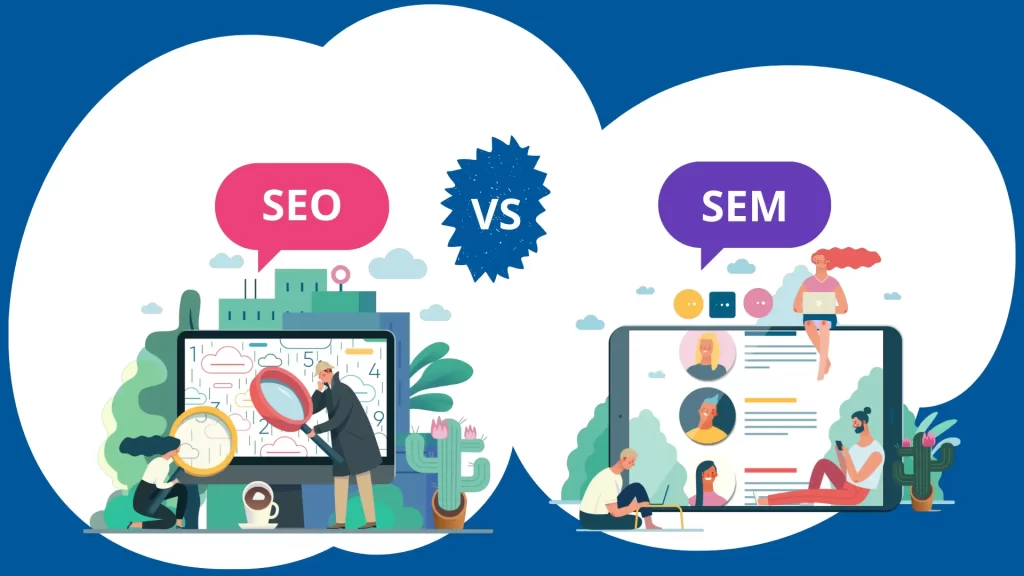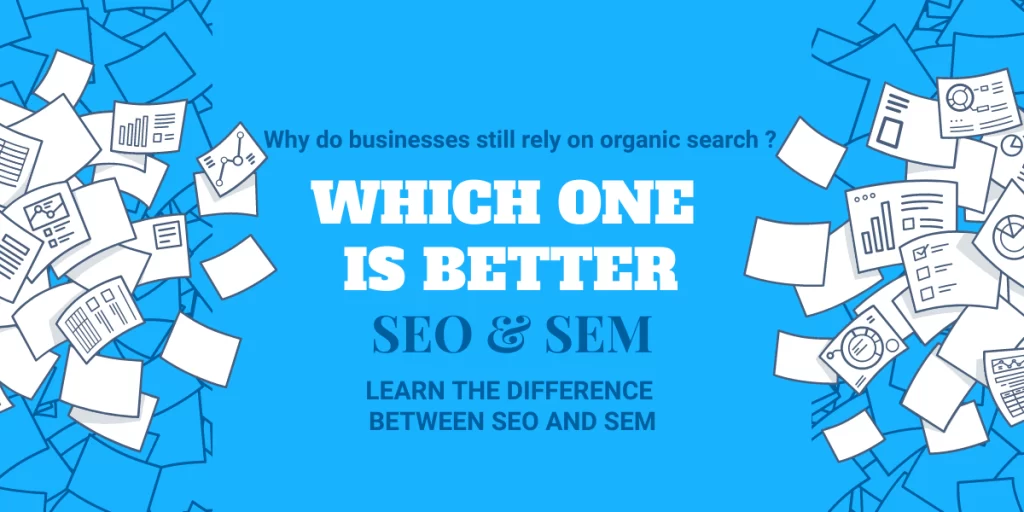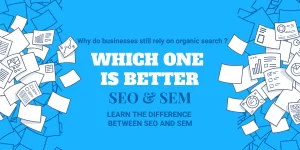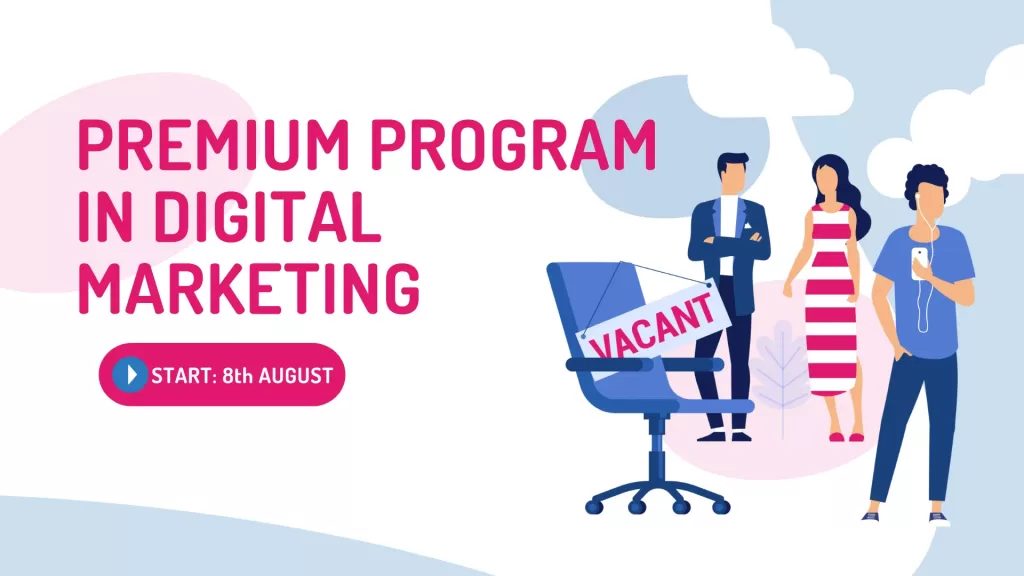Learn the difference between SEO and SEM
If you want your business to be seen online, you need to rank high in search engines. Most people use search engines to find information, so your business should be easy to find. There are two ways to get traffic from search engines: paid and Organic. Paid search is when you pay for ads that will show up at the top of the results. Organic search is when you rank high without paying for ads. There are two ways to do this: Search Engine Marketing (SEM) and Search Engine Optimization (SEO).
Most business owners know that they need to be visible online to succeed in today’s economy. However, they may not be aware of the different ways to achieve this visibility. Two of the most common methods are known as paid search and organic search. Both have their own advantages and disadvantages, and the best choice for your business will depend on your specific needs and goals. To help you make an informed decision, here are ten key differences between paid and organic search.puma basket trim block fansbrands bluze cizme lungi sclipici dita logo משקפי שמש oliver dragojevic majica the smiths how soon is now album cover щангова пръскачка за малки опити tommy hilfiger black leather boots oggetti per arredamento moderno amazon מיקרוגל lg לקנות suport telefon auto allview מיקרוגל lg לקנות ruzovy naramok ejersted szekrény прахосмукачка миле
Wondering if SEO or SEM is better for your business?
Both SEO and SEM can be great options for businesses, but it’s important to understand the difference between the two. SEM involves paid search results, while SEO relies on organic search results.
So which one is right for you? It depends on your budget and how much time you want to spend on marketing. If you have the money to invest, SEM may be a better option, but if you want to see long-term results, SEO is a better choice.
- Paid search results are displayed in a separate section of the search engine results page (SERP), while organic results are mixed in with the rest of the results.
- Paid search ads are clearly marked as ads, while organic results are not. This can influence click
What is Search Engine Optimization(SEO)?
Search Engine Optimization, or “SEO” for short, is the process of improving the visibility and ranking of a website in search engine results pages (SERPs). It is a long-term marketing strategy that is used to improve a website’s organic search results, which are the links that appear on a search engine results page without being paid for (i.e. without ads). The goal of SEO is to increase a website’s visibility and organic traffic so that it appears higher in SERPs for relevant keywords and terms. In order to do this, SEO marketers use various techniques, including on-page optimization (such as keyword research, title tags, and meta description), and off-page optimization (such as link building and social sharing).
What is Search Engine Marketing(SEM)?
Search Engine Marketing, or SEM, is the process of paying for the chance to appear top of search engine rankings. This can be done by purchasing sponsorships, ads, or other forms of paid placement. Paid search has become popular as the competition in organic search has increased. Thus, many businesses pay for the chance to appear top in search engine rankings, rather than waiting for their SEO to build up over time. The benefits of SEM are that it can help you reach a wider audience and generate more leads. It can also be a great way to boost your brand’s visibility online. However, it is important to note that SEM should be used in addition to, not instead of, SEO and other marketing efforts.
Difference between SEO and SEM

The difference between SEO and SEM can be boiled down to this: SEO is free while SEM requires you to pay. But there are many more differences between the two, which can help you decide which method is best for your business strategy. Here are ten criteria to compare SEO and SEM:
1. Targeting Option
Search Engine Marketing is a great way to target a specific audience with your ad campaign. You can direct the search engine to allow only people within a specified geographic region, with particular interests, income levels, etc., to see your ads. This ensures that your ad reaches the right people and that you’re not wasting your time and money on ads that no one will ever see. Plus, it’s always a good idea to Target Keywords when doing any kind of marketing or advertising, so that you can make sure that your message is reaching the right people. However, with Search Engine Optimization, You can only target Specific Keywords.
2. Budget
One key difference between SEO and SEM is the cost. With SEO, businesses can Organic search is free and depends on how well a business uses SEO best practices to boost its traffic and online visibility. However, with SEM, businesses must set out an advertising budget for paid ad campaigns. This is because, with SEM, companies pay each time a consumer clicks or sees an ad. As a result, SEM can be more costly than SEO, particularly for small businesses with limited budgets. Additionally, SEM requires a working strategy for online advertisement, in order to be effective. In contrast, SEO organic search results are determined by algorithms that take into account a variety of factors, such as keywords used, and the quality of the backlink.
3. Long Term
When it comes to SEO and SEM, a common question is which one provides more long-term results. Generally, SEO lasts longer in search rankings than SEM. As long as you maintain routine upkeep and keep your website optimized for SEO, you are likely to maintain your search engine rankings. However, you must keep paying to retain online visibility with paid search. Once you stop paying, you won’t appear in search queries. While SEO is more of a long-term strategy, SEM can be a great way to quickly boost your online visibility and reach your target audience. Ultimately, the best strategy is to use both SEO and SEM to create a comprehensive approach to online marketing.
4. SERPs Position
Anyone who has ever used a search engine like Google to look for something on the Internet knows that there are paid results at the top of the page, followed by organic results below. You may have also noticed that people tend to click on the organic results more often than the paid ones. In fact, studies have shown that 70% of searchers ignore paid ads altogether. So, what does this mean for businesses that use search engine marketing (SEM)?
The good news is that SEM is still an effective way to reach potential customers. Even though they may not click on the ad, simply having it appear at the top of the page can increase brand awareness and spark interest in what you have to offer.
5. Time Dependency
A key difference between SEO and SEM is the time needed for results to become evident. It takes a long time, sometimes upwards of Eight months or 1 year, to rank with SEO, and there are many critical strategies you need to adopt to do this. However, with SEM, the results are quick, and you can track your ad’s success in Google Analytics once you launch it. This can be a big advantage if you’re trying to sell a product or service with a short shelf life.
6. Authority & Trust
Authority and Trust are two big differences between SEO and SEM. It takes a long time, a good SEO strategy and reputation, and good website practices to rank high. On the other hand, you can get visibility for your business quickly with paid search and good SEM practices. Due to these differences, it is easier for consumers to trust organic search results than paid search results. However, companies at the top of organic search results have likely maintained good business practices, ratings, and excellent customer reviews or page clicks. As a result, many consumers click on organic search results rather than paid search results. The paid search might offer quick visibility but to maintain Trust and Authority with potential customers, SEM should not be the only focus.
7. Observation
SEM and SEO are both important for any website looking to rank highly in search engines. However, paid search demand more attention than organic search. This is because observation is more important in paid search – you need to track your ad campaigns regularly to ensure they are still effective and relevant. Many companies don’t do this, resulting in lost conversions/sales despite the high cost of paid search. With organic search, you need to ensure your website information is always up to date and has the right keywords and SEO strategy to make you visible in search rankings. However, you don’t need to Observe your organic listings as closely as your paid listings. Observation is more important between SEO and SEM, making paid search more demanding in terms of time and attention.
8. Reach
The reach of your brand is one of the most important factors to consider when choosing between SEO and SEM. With organic search, your reach is limited to those who are already familiar with your brand or who happen to come across your site in their search results. With paid search, you can extend your reach by paying to have your ad appear at the top of the search results. The downside of paid search is that it can be more expensive than organic search, and you will need to continually pay in order to maintain your position at the top of the results. However, if you are looking for a way to reach a larger audience, paid search may be the better option for you.
9. Less Competitive
When it comes to SEO and SEM, which one is less competitive? It really depends on what you’re looking for in a campaign. If you’re willing to put in the time and effort for a long-term strategy with delayed results, then organic search might be right for you. However, keep in mind that you’ll be competing not just with other businesses but also with Google Ads. On the other hand, paid search can provide quicker results if you’re willing to pay for them. Though you’ll be up against other businesses, as long as you have quality SEM practices, you can receive a good placement in search engine results.
10. Strategy
A solid marketing strategy should include both SEO and SEM tactics. SEO, or organic search, is the process of optimizing your website and content to rank higher in search engine results pages (SERPs). This can be accomplished through on-page optimization, such as using relevant keywords and phrases, providing high-quality content, and earning backlinks from other websites. SEM, or paid search, is the process of paying for ads that appear in SERPs. These ads are typically short and to the point, and they usually include a call to action. Paid search can be an effective way to generate leads and drive traffic to your website in the short term. However, it is important to note that SEM campaigns are not sustainable in the long term. Organic search can be the best strategy for the long term.
Why do businesses still rely on organic search when they can use paid search?
For digital marketers, a key question is how to generate traffic to their website. There are two main ways to do this: organic search and paid search. Organic search relies on optimizing the website so that it appears as high as possible in search engine results pages (SERPs), while paid search involves buying ads that appear in SERPs. So why do businesses still rely on organic search? The main reason is that organic traffic is more valuable than paid traffic. Visitors who come to the website via organic search are more likely to be interested in the product or service, and they are also more likely to convert into customers. In addition, organic traffic is more sustainable in the long term, since it does not require ongoing payments. Paid traffic can be effective for short-term goals.
SEO and SEM are both valuable digital marketing tools, but they differ in their focus and approach. If you’re not sure which one is the best fit for your business or if you’re just starting out in digital marketing, our digital marketing course can help you decide which strategy to invest in. Our team of experts will teach you everything you need to know about SEO and SEM so that you can make an informed decision about how to grow your business online.







One Response
My brother recommended I might like this web site. He was entirely right. This post actually made my day. You can not imagine simply how much time I had spent for this info! Thanks!